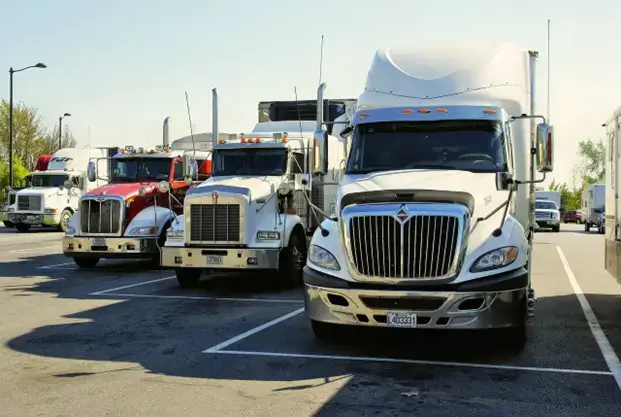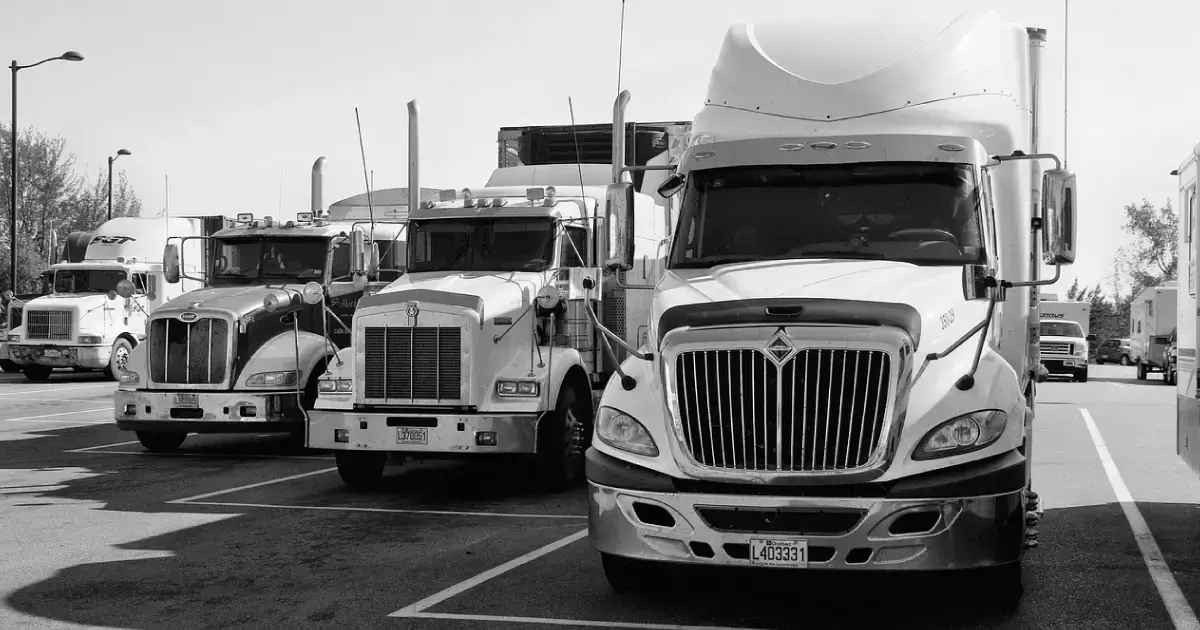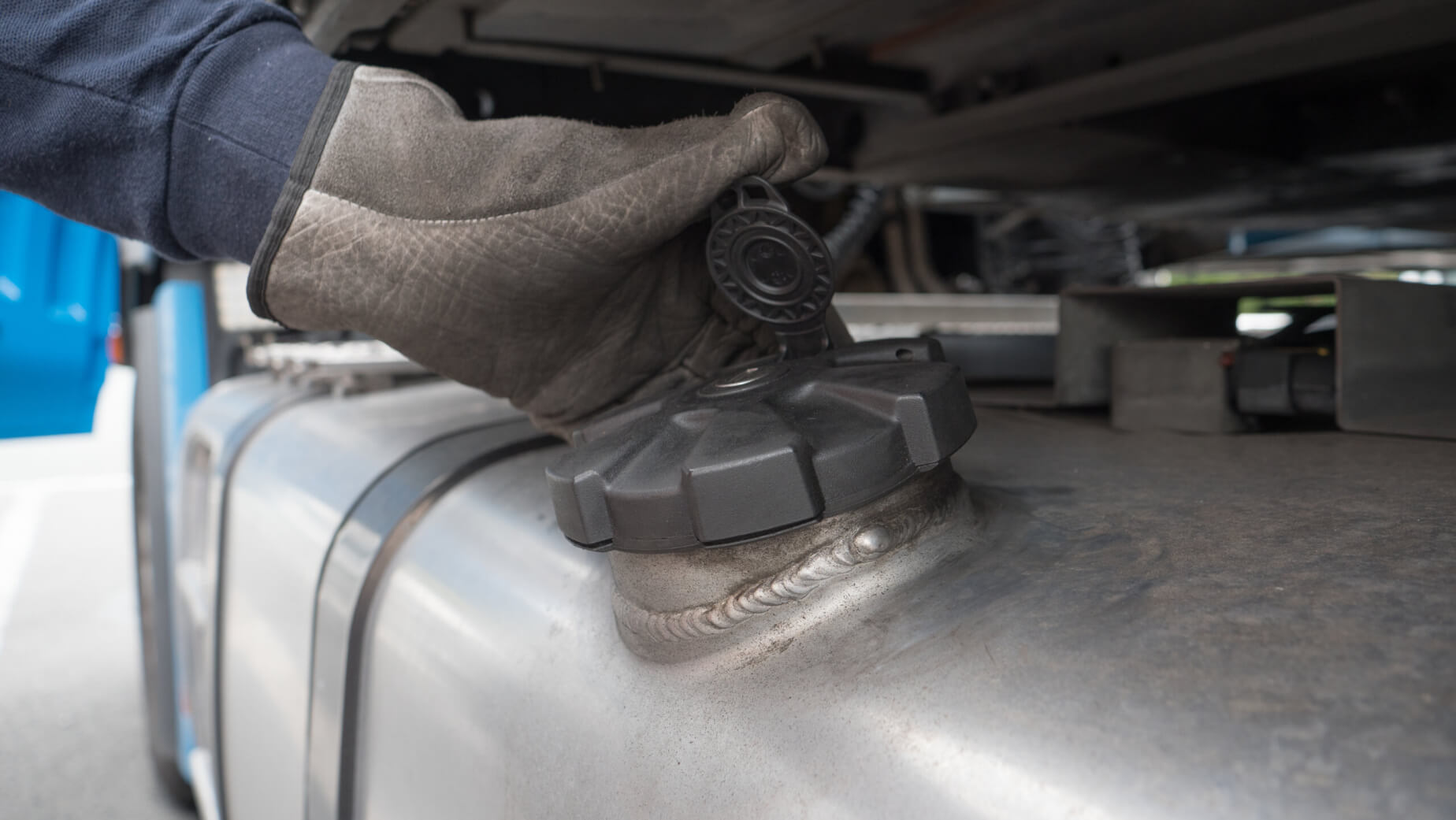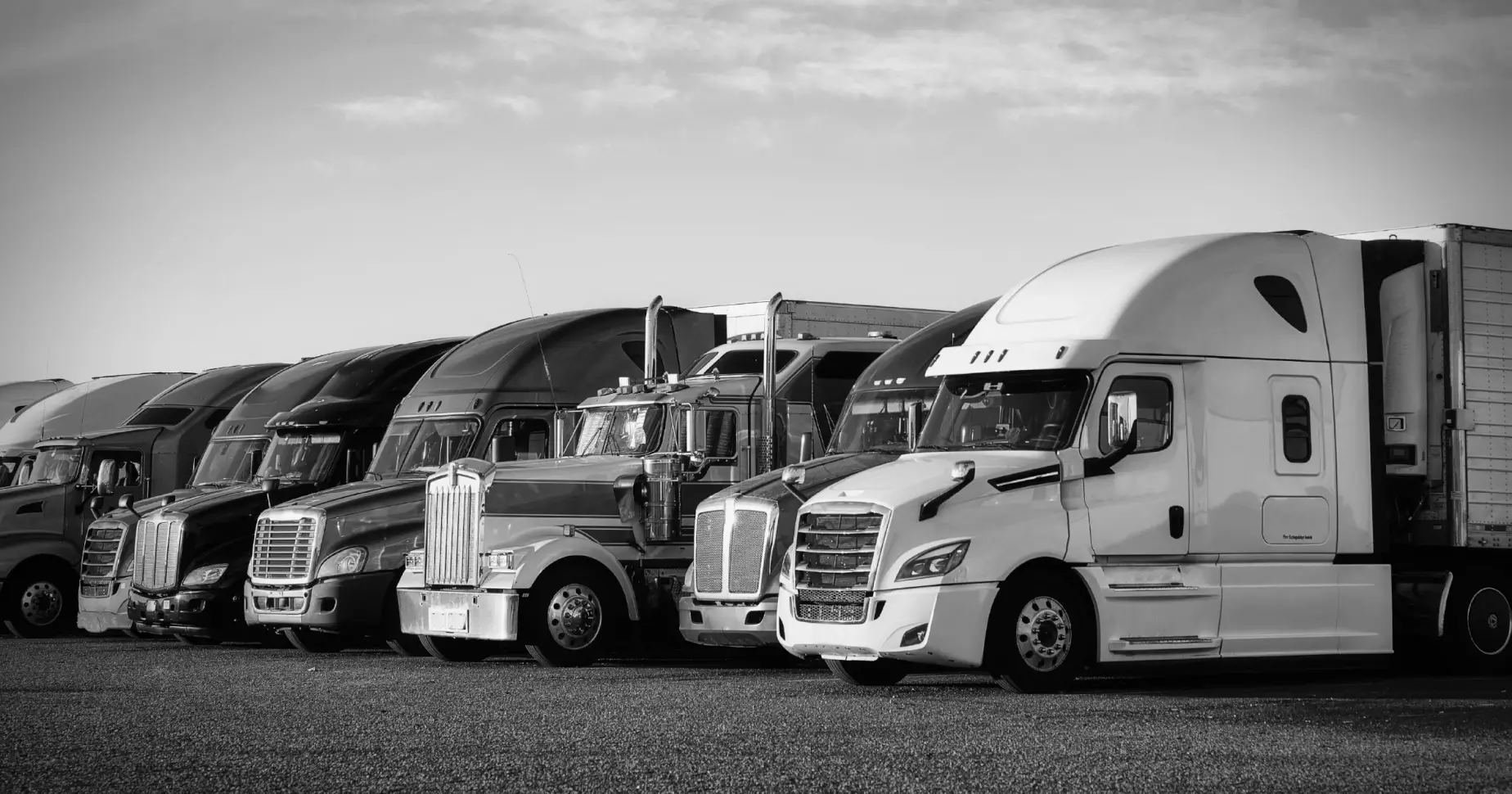According to DTF’s analysis, as of December 2022, there are over 15 million commercial trucks worldwide. Of these, about 75.6% are powered by diesel fuel. The study clearly states that approximately two-thirds of all trucks on the road rely on diesel power. It shows that diesel engines have dominated the commercial fleet industry.
Big trucks are responsible for the majority of transportation and logistics. They handle heavy loads and move goods across cities, states, and countries. Big trucks have diesel engines that offer better fuel efficiency, higher torque, and longer engine life than gasoline engines.
Diesel engines are built to withstand high compression and produce more torque at lower RPMs. Diesel fuel powers these trucks due to its higher energy density, enabling them to handle heavy loads easily. These advantages make diesel engines the top choice for the commercial trucking industry.
Let’s understand why big trucks use diesel instead of gasoline. We will also highlight the different pros and cons of diesel trucks.

Diesel vs Gasoline Engines in Trucks and Trailers
Trucks equipped with diesel engines are more fuel-efficient, deliver higher torque, and are designed for durability and long-term performance. Gasoline engines are primarily used in small cars for regular driving, transportation, or personal use.
However, diesel engines are specifically designed for heavy-duty tasks in fleet businesses and other industries requiring heavy equipment or machinery. Let’s compare diesel vs gasoline engines to understand how they work.
● How Diesel Engines Work
A diesel engine compresses air using a piston to increase the temperature inside its cylinder. Then, diesel fuel is sprayed into the compressed hot air, which causes the fuel to ignite. The energy created by the ignition pushes the piston down and generates power that moves the vehicle through the crankshaft and powertrain. The engine repeats this process rapidly, making it robust and efficient.
● How Gasoline Engines Work
Gasoline engines work differently from diesel engines. In gasoline engines, spark plugs ignite a mixture of gasoline and air that enters the engine cylinder. This ignition causes an explosion that pushes the piston and generates power.
“ The main difference between the two engines lies in their combustion process. Diesel engines do not have spark plugs; instead, fuel ignites due to the high temperature caused by air compression in the combustion chamber. On the other hand, gasoline engines use spark plugs to ignite the compressed mixture of air and gasoline.
Diesel fuel has a higher energy content and greater fuel density and evaporates more slowly, so it is suitable for big trucks. Conversely, gas engines work best for lighter vehicles designed for speed and quick acceleration, as gasoline has a lower energy density but burns faster. It is very important to understand the mechanics to avoid mistakes such as putting gas in a diesel truck engine.
The Advantages of Diesel for Big Trucks
The following are the primary benefits of diesel fuel for big trucks:
1. Efficiency and Fuel Economy
Diesel fuel’s high energy density provides greater fuel efficiency. It burns effectively even at lower temperatures, ensuring reliable performance in harsh winter conditions. According to the U.S. Department of Energy, diesel engines deliver 30% to 35% better fuel economy than gasoline engines of the same size.
2. Torque and power
Torque is the rotational force that an engine generates to move heavy loads. It measures a vehicle’s ability to perform work. Big trucks need higher torque for hauling cargo and transporting bulk materials. Diesel engines produce higher torque than gasoline engines because diesel burns more slowly and has a higher energy content.
This helps diesel engines generate strong force even at lower speeds, so they can easily handle bulk loads.
3. Durability and reliability
Diesel engines have thicker walls and bigger pistons, which make them more durable than gas engines. Their sturdy design allows easy lubrication, which reduces friction and prevents damage to moving parts. Diesel engines also have fewer electrical components, lowering the risk of mechanical failure. Their rugged construction benefits big diesel trucks by offering durability to handle loads and operate for long hours.
4. Emissions
Diesel engines produce emissions, but as technology has evolved, modern vehicles have reduced their environmental impact. Modern diesel vehicles have emission control technologies such as diesel particulate filters (DPF) and selective catalytic reduction (SCR). These innovations help lower harmful pollutants like nitrogen oxides and particulate matter.
While diesel vehicles may emit more nitrogen oxides, they produce lower CO2 emissions compared to their gasoline engines.
The Disadvantages of Gasoline for Big Trucks
Although gasoline engines are used in some trucks, they have certain disadvantages when choosing gas as a fuel for big vehicles. Here are a few drawbacks:
- Gasoline cannot offer better fuel efficiency for big trucks due to its lower energy content per gallon.
- Gasoline engines do not provide the higher torque required for trucks to carry bulk loads.
- Gas engines are less durable and lack the strength and efficiency to perform heavy-duty tasks.
- Gasoline trucks have a shorter engine lifespan compared to diesel engines.
- Gas engines may not perform well in extreme winter climates.
- Gasoline emits more CO2 than diesel in big trucks.
Cost Considerations
You might wonder why is diesel more expensive than gas. Diesel requires more complex refining steps to achieve the desired fuel quality. Moreover, during an economic boom, diesel costs rise due to higher demand for industrial trucks and equipment use.
Although diesel trucks have a higher upfront cost, they offer better fuel economy than gasoline-powered vehicles. Diesel trucks also require less frequent maintenance and last longer due to their durability. On the other hand, gasoline trucks are cheaper to purchase initially, but they have higher fuel costs and are generally less durable than diesel trucks.
The difference in the initial costs of diesel and gasoline-powered trucks is due to engine complexity, emission standards, taxes, and subsidies. These factors collectively contribute to the higher upfront cost of diesel trucks.
Environmental Considerations
The EPA has special rules and regulations to control vehicle emissions. Diesel vehicles are widely used in industries and businesses and are a major source of nitrogen oxides (NOx) and other greenhouse gas emissions. Government agencies responsible for regulating vehicle emissions require using cleaner-burning diesel and exhaust treatment to reduce emissions and protect the environment.
“ The petroleum industry now produces Ultra-Low-Sulfur Diesel (ULSD), with a sulfur concentration of just 15ppm to meet EPA standards. This cleaner-burning fuel, combined with advanced exhaust emission systems, reduces particulate emissions by up to 90% and nitrous oxide emissions by 25% to 50%. Diesel exhaust fluid also helps reduce emissions. Many fuel delivery agencies offer DEF in bulk as well.
In the future, the use of diesel in the trucking industry may decrease due to stricter emissions regulations and the rise of electric and hydrogen-powered trucks.
Key Takeaways
Diesel remains the dominant fuel choice for big trucks due to its superior fuel efficiency, greater torque, and durability. Although alternative fuels like electricity and hydrogen are essential as more environmentally friendly options, diesel’s role in the trucking industry remains crucial.
Advancements in emission control technologies, such as ULSD fuel and SCR technology, have helped reduce diesel’s environmental impact. This ensures that diesel remains a reliable and efficient option for powering big trucks.
FAQs (Frequently Asked Questions)
Q1: Do some trucks still use gasoline?
Yes, some smaller light-duty trucks still use gasoline to run. Such trucks are specifically designed to handle lighter loads and cover shorter trips. However, heavy-duty trucks always use diesel because gas cannot provide enough power for long hauls and heavy cargo.
Q2: What are the downsides of using diesel in trucks?
Diesel fuel offers slower speeds and lower horsepower than gasoline in vehicle engines. Moreover, diesel engines are noisier and provide a rougher ride. Their complex design leads to costly repairs.
Q3: How do diesel trucks handle cold weather?
Diesel engines depend on high compression to ignite fuel, which becomes difficult in cold weather. To help with this, they use engine block heaters to keep the engine warm when parked.
Fuel additives also help by stopping diesel fuel from gelling in freezing temperatures. Drivers let the engine idle to warm it up before driving. Modern diesel trucks have glow plugs and intake heaters that assist with cold starts.
Q4: What advancements are being made to improve diesel engine efficiency?
Modern diesel vehicles use advanced technology and innovations to improve engine efficiency. Engineers have made changes to the pre-chamber and combustion chamber to increase power and enhance performance. To control emissions, particulate filters, oxidation catalysts, and selective catalytic reduction systems are included.
Q5: Why don’t semi-trucks use gasoline?
Semi-trucks don’t use gasoline because diesel engines are more efficient for hauling freight. Diesel fuel has more energy per gallon, making it more cost-effective for long hours of operation. Diesel engines also last longer and are more durable, so they are best suited for trucking.
Q6: Is it cheaper to drive diesel or gas?
Although diesel fuel is more expensive than gasoline per gallon, it offers better mileage on the same amount of fuel. Diesel engines are more fuel-efficient and can save money in the long run by providing better fuel economy.
Order Diesel Fuel for Your Trucks Anytime, Anywhere with Fuel Logic
Tired of making frequent trips to gas stations to refuel your diesel trucks?
Choose Fuel Logic to keep your trucks fueled with fast and reliable diesel delivery services.
Fuel Logic is a trustworthy fuel delivery agency that brings fuel right to your business location.
You can buy diesel in bulk to keep your stock full.
We also deliver DEF, gasoline, and off-road diesel at numerous locations across the US.
You can also contact our customer support or visit our FAQ page for answers to queries.
So, what are you waiting for? Reach out to us and place your order today.
24/7 Nationwide diesel Fuel supplier for your Trucks
Fuel Logic keeps your fleets and trucks moving with our 24/7 diesel fuel delivery — reach us anytime for on-site fueling.







